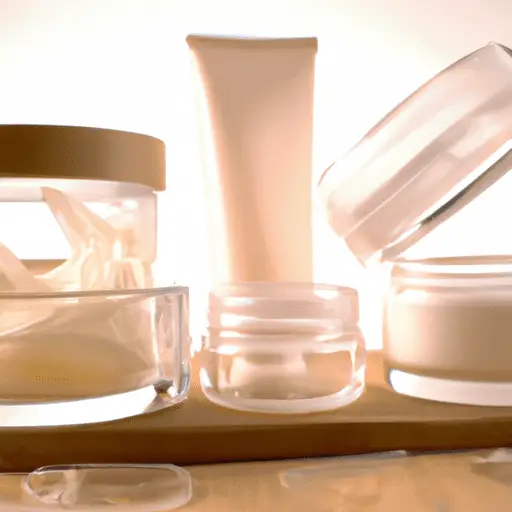-
Table of Contents
- Different Types of Moisturizers and Their Benefits
- Key Takeaways
- Introduction: The Importance of Moisturizers
- The Different Types of Moisturizers
- Lotions
- Creams
- Ointments
- Serums
- Benefits of Moisturizers
- FAQ Section
- 1. How often should I use a moisturizer?
- 2. Can I use the same moisturizer for my face and body?
- 3. Are expensive moisturizers better?
- 4. Can I skip moisturizer if I have oily skin?
- 5. What ingredients should I look for in a moisturizer?
- Conclusion: The Power of Moisturizers
- Key Takeaways Revisited
Different Types of Moisturizers and Their Benefits

[youtubomatic_search]
Key Takeaways
- Moisturizers are essential skincare products that help maintain skin health and appearance.
- There are different types of moisturizers, including lotions, creams, ointments, and serums, each with unique benefits.
- Choosing the right moisturizer depends on your skin type, climate, and personal preferences.
- Regular use of moisturizers can help prevent skin problems and slow down the aging process.
- It’s important to understand the ingredients in moisturizers to ensure they are safe and effective.
Introduction: The Importance of Moisturizers
Moisturizers are an integral part of any skincare routine. They help keep the skin hydrated, soft, and supple, and can also protect the skin from environmental damage. With a myriad of moisturizers available in the market, it can be challenging to choose the right one. This article explores the different types of moisturizers and their benefits.
The Different Types of Moisturizers
Moisturizers come in various forms, each designed to cater to specific skin needs and preferences. The main types include lotions, creams, ointments, and serums.
Lotions
Lotions are lightweight and easily absorbed into the skin. They are ideal for normal to oily skin types and for climates with high humidity. Lotions often contain a higher percentage of water than other moisturizers, making them less greasy and more comfortable to wear throughout the day.
Creams
Creams are thicker than lotions and provide more intense hydration. They are suitable for dry to normal skin types and for colder climates. Creams often contain oils that help lock in moisture and prevent water loss from the skin.
Ointments
Ointments are the thickest type of moisturizers and provide the highest level of hydration. They are best for extremely dry or damaged skin and for treating specific skin conditions like eczema or psoriasis. Ointments often contain a high percentage of oils, which can leave a greasy feel on the skin.
Serums
Serums are lightweight and fast-absorbing, delivering active ingredients deep into the skin. They are suitable for all skin types and can be used in conjunction with other moisturizers. Serums often contain high concentrations of active ingredients, making them effective for addressing specific skin concerns like aging or hyperpigmentation.
Benefits of Moisturizers
Regular use of moisturizers offers numerous benefits for the skin. According to a study published in the Journal of Clinical and Aesthetic Dermatology, moisturizers can help maintain the skin’s natural protective barrier, prevent water loss, and improve skin texture and appearance. They can also help slow down the aging process by keeping the skin plump and reducing the appearance of fine lines and wrinkles.
FAQ Section
1. How often should I use a moisturizer?
Most dermatologists recommend applying moisturizer at least once a day, preferably after bathing when the skin is still damp to lock in moisture.
2. Can I use the same moisturizer for my face and body?
While it’s not harmful, it’s generally recommended to use separate moisturizers for the face and body as they have different needs and sensitivities.
3. Are expensive moisturizers better?
Not necessarily. The effectiveness of a moisturizer depends on its ingredients, not its price. Some affordable moisturizers can be just as effective as their high-end counterparts.
4. Can I skip moisturizer if I have oily skin?
No. Even oily skin needs hydration. Skipping moisturizer can actually cause your skin to produce more oil to compensate for the lack of moisture.
5. What ingredients should I look for in a moisturizer?
Look for ingredients like hyaluronic acid and glycerin that attract moisture, and ceramides and fatty acids that help strengthen the skin’s barrier.
Conclusion: The Power of Moisturizers
Moisturizers are more than just a luxury; they are a necessity for maintaining healthy, youthful-looking skin. Understanding the different types of moisturizers and their benefits can help you make an informed decision about the best product for your skin. Remember, the best moisturizer for you depends on your skin type, climate, and personal preferences. So, don’t be afraid to experiment until you find the one that works best for you.
Key Takeaways Revisited
- Moisturizers play a crucial role in maintaining skin health and appearance.
- Different types of moisturizers cater to different skin needs and preferences.
- Choosing the right moisturizer involves considering your skin type, climate, and personal preferences.
- Regular use of moisturizers can help prevent skin problems and slow down the aging process.
- Understanding the ingredients in moisturizers is key to ensuring their safety and effectiveness.
[youtubomatic_search]

Leave a Reply